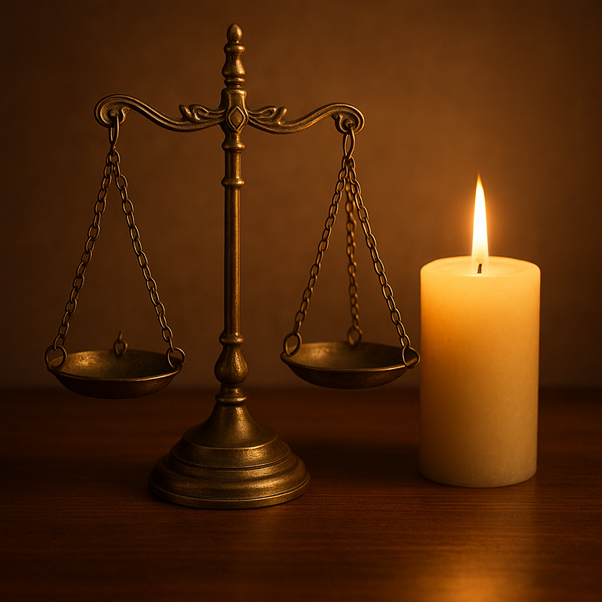Fatal Injury claims are claims brought by loved ones or dependants of the deceased where they have passed away due to a wrongful act or negligence of another party. It is a difficult and emotional process to deal with, and nothing can compensate for that loss. However, the option of legal redress by way of a fatal injury claim can help reduce the financial burden which often arises when a loved one has passed.
The process of bringing a fatal injury claim can be complex and it is important to have knowledgeable and reliable advice during these difficult times. At Anthony Joyce & Co Solicitors, our Personal Injuries and Medical Negligence team have years of experience in bringing fatal injury and medical negligence claims and will guide you through the process in a compassionate and professional manner.
When can I bring a Fatal Injury Claim?
Fatal Injury claims arise when a death occurs due to someone else’s negligence or wrongdoing. This can include but are not limited to the following;
- Medical Negligence – These are errors made by a healthcare professional or practice that result in a wrongful death.
- Road Traffic Accident – Where another’s drivers negligence leads to a fatal accident.
- Workplace Accidents – Where an unsafe working environment or the actions of an employer has caused the death. This could be where there is an accident involving machinery or an unsafe premises or where there is exposure to harmful chemicals and toxins.
- Defective Product – Where a defective product has caused the death, this can include defective medical devices.
- Public liability – Where an accident which occurs in public, such as a road, footpaths, shops etc cause the death. This can be defective roads or footpaths in public areas or on spillages or unsafe building design on private premises.
Who can make a claim?
If your loved one has died to the negligence or wrongful act of another party, whether you can bring a claim is set out in the provisions of the Civil Liability Act 1961. This list of Statutory Dependants includes;
- Spouse
- Child/Adopted Child
- Parent/Stepparent
- Qualifying Co-Habitant
- Grandparent
- Sibling
- Grandchild
It is usually the case that the deceased will have more than one person who qualifies as a dependant under the 1961 Act. Only one fatal injury claim can be brought in relation to the wrongful death of the deceased, therefore a fatal injury claim must be brought by one dependant on behalf of all of the deceased’s dependants.
It is therefore important to have a list of the potential dependants of the deceased when bringing a claim so that every dependant can be properly compensated for.
What can I claim for?
Compensation for Mental Distress and Nervous Shock
- Mental Distress: Also known as Solatium, dependants are allowed to claim for a fixed sum of €35,000 under the 1961 act which is shared among the dependants.
- Nervous Shock: This is compensation for psychiatric injuries which go beyond the usual grief or sorrow experienced with the death of a loved one. Where a dependant has experienced Post Traumatic Stress Disorder (PTSD), adjustment disorder or depression from witnessing or being involved in the tragic event or circumstances that result in the wrongful death, then they may claim for these psychiatric injuries.
Loss of Dependency
This is where a dependant relied on the deceased, either financially or otherwise.
- Financial Dependency: This is where a dependant, usually a spouse or child, had financially relied on the deceased and can no longer do so. Where this is the case, it can make an already heartbreaking loss even more difficult to deal with. In this case, a Consultant Actuary will be instructed to calculate the future loss of earnings and financial losses that the dependants would otherwise have been able to rely on.
- Loss of Service: These are services provided by the deceased to the dependants. These can include household services like cooking, gardening, repairs and maintenance. It can also include childcare or care to a parent/grandparent where the deceased was a Carer. Again, an Actuary would be instructed to calculate the value of these services by estimating the number of years the deceased would have provided these services for.
Special Damages
This refers to any out-of-pocket expenses incurred as a result of the wrongful death. This includes funeral expenses, the cost of a headstone and the cost of removal and transport where the deceased is a foreign national.
Bringing a Claim
If you believe a loved one may have died due to the negligence or wrongful act of another party, it is important to contact a Solicitor and obtain advice as soon as possible. The statute of limitations for bringing a fatal injury claim is two years from the date of death. This time limit can, in certain circumstances, start from the date of knowledge that the death was caused by a wrongful act.
If we believe you have a valid claim, we will submit the claim with the Injuries Resolution Board, however, if the claim arises out of medical negligence (link to medical negligence article) court proceedings can issue straight away once a supportive expert report is obtained confirming negligence in the particular case on the part of a Doctor/Hospital.
Contact a Fatal Injury Solicitor
The Personal Injuries and Medical Negligence team at Anthony Joyce & Co have years of experience in Fatal Injury Claims, particularly in relation fatal injuries arising out of medical negligence. We understand that it is an emotionally difficult time and that complex legal proceedings can add to the distress.
Fatal Injury Claims are an important avenue for families whose lives have been upturned by a wrongful death and we will handle your claim in a compassionate and proactive manner. If you wish to discuss your fatal injury claim, please contact Anthony Joyce & Co Solicitors for more information and assistance.




